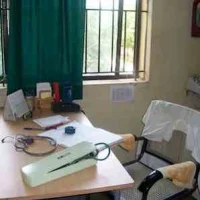A new study published in BMJ Open concludes that the employment of nurses trained abroad as a substitute for nurses educated at home presents risks to quality of care.
Western countries like the U.S. and England rely on nurses trained abroad in times of shortages. This study was conducted with 12000 patients in a sample of 31 National Health Service (NHS) Trusts in England. The survey aimed to determine factors that influence patients' satisfaction with the quality of care. This is the largest study of its kind.
The findings show that every 10 point increase in the percent of non-UK educated nurses at the hospital was associated with a 10 percent lower odds of patients giving the hospital an excellent or a very good rating. In other words, in hospitals where 30 percent of nurses were trained outside of England were 30 percent less likely to rate their hospital as very good. Similarly, patients in hospitals with nurses trained abroad were also less likely to be treated with respect and dignity, being provided information about their medicines and getting easy to understand answers to their questions.
Senior author Professor Linda H. Aiken, Director of Penn Nursing's Center for Health Outcomes and Policy Research points out that a previous study documented higher mortality for patients in US hospitals that employed more non-US educated nurses. This study was motivated by these findings and also the fact that NHS hospitals were increasingly recruiting nurses that have been trained abroad despite concerns about their quality.
Co-author Professor Peter Griffiths, Chair of Health Services Research at the University of Southampton, added, "National workforce planning in England has failed to consistently deliver enough professional nurses to work in the NHS. Relying on bringing in large numbers of foreign educated nurses to make up the shortfall is not a simple solution and may not be effective."
Co-author Professor Anne Marie Rafferty of the Florence Nightingale School of Nursing and Midwifery at Kings College London also highlights the fact that nurses in England are in short supply because the NHS does not fund enough nursing school places. There is a need to build an adequate, domestic supply of nurses in order to ensure the best quality of care in both England and the U.S.
Source: BMJ Open
Image Credit: Wikimedia Commons
Latest Articles
nurses, patient satisfaction, nurses trained abroad, hospitals, quality of care
A new study published in BMJ Open concludes that the employment of nurses trained abroad as a substitute for nurses educated at home presents risks to quality of care.










